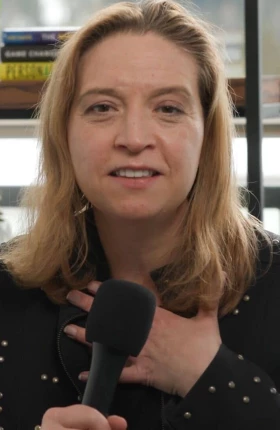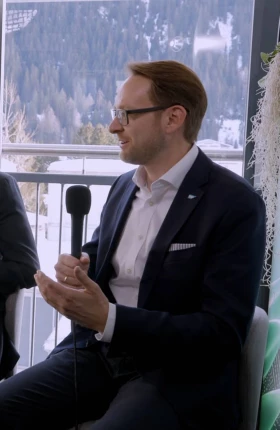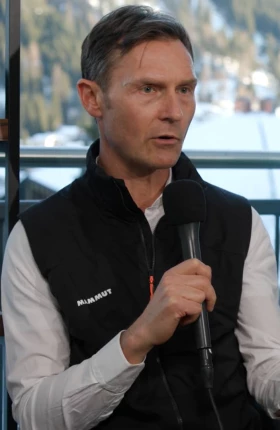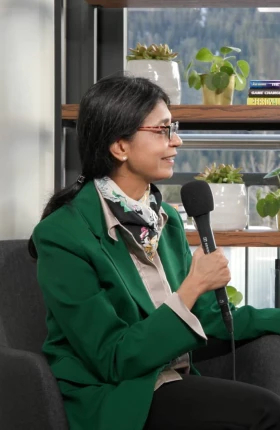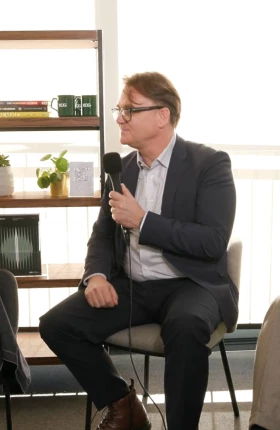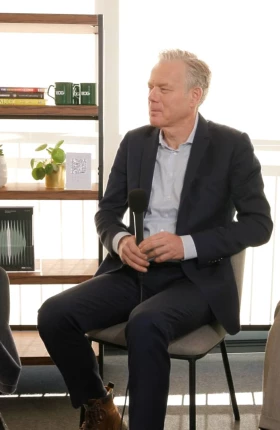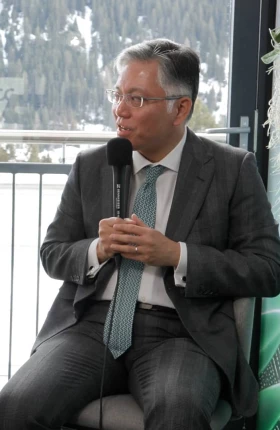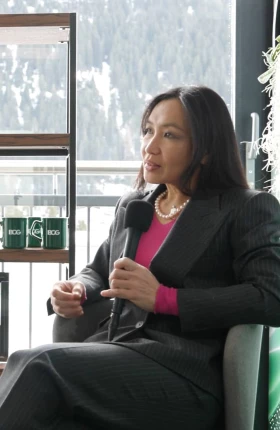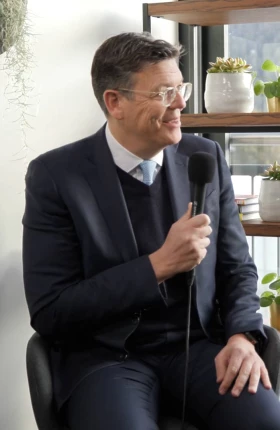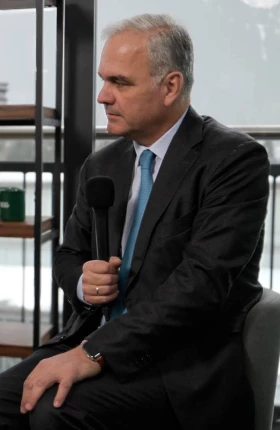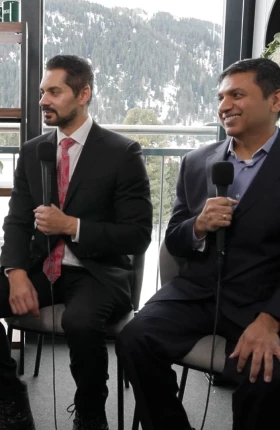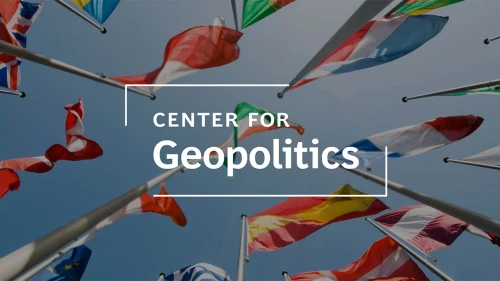Highlights from Davos 2025
Video
January 23, 2025
Becoming an AI-First Company
BCG’s Vlad Lukic gives a peek into the fascinating conversations that AI-focused companies are having around the business operating model and the tech architecture.
Video
January 23, 2025
How Trade Will Evolve Over the Next Decade
What countries and regions are expected to grow in the coming years? BCG’s Nikolaus Lang provides insights from BCG’s global trade report.
Video
January 23, 2025
Three Tech Topics for Davos
BCG’s Vlad Lukic anticipates the three technology questions that will be top of mind for CEOs and leaders at Davos this week.
Video
January 23, 2025
What Leaders Can Do to Harness the Power of AI
AI is a top priority for 75% of executives, but only 25% are seeing its impact. BCG’s Jessica Apotheker shares a robust playbook for getting results.
Video
January 23, 2025
A Mentorship Approach for Mutual Teaching and Mutual Growth
BCG’s Alicia Pittman discusses how two-way mentorship fosters personal and professional growth, embodying the firm’s core principles.
Video
January 24, 2025
Delivering on an Innovation Agenda
IBM’s Rob Thomas and BCG’s Sylvain Duranton discuss what’s needed to foster tech innovation and the developments that they are excited to see in 2025.
Video
January 24, 2025
Creating Value with AI
Companies are beginning to focus on AI’s ROI. SAP’s Thomas Saueressig and BCG’s Vikas Taneja say data quality and change management are key to value creation.
Video
January 24, 2025
How a Pioneer in Alpine Apparel Stays on Top
Mammut CEO Heiko Schaefer and Sylvain Duranton of BCG X discuss AI's role in product and process innovation and the importance of building a culture of trust.
Video
January 27, 2025
How to Optimize Your Tech Deployments
In discussion with BCG's Vikas Taneja, IBM's Ana Paula Assis highlights embracing the hybrid cloud architecture, data governance, and agentic AI to boost tech efficiency.
Video
January 27, 2025
Businesses Must Develop Their Geopolitical Muscle
BCG’s Nikolaus Lang says we are moving toward a world where companies need to understand geopolitics and use that understanding to inform their strategies.
Video
January 27, 2025
Reasons for Optimism in 2025
The prospects for green technologies, clean energy, partnerships, and AI are just a few of the areas that are creating excitement for the year ahead.
Video
January 29, 2025
Lessons from Davos for Energy Companies
Firms should consider geopolitical changes, AI implications, maximizing value, and the outlook for the energy transition, says BCG’s Pattabi Seshandri.
Video
January 29, 2025
AI Is Pulling the Technology and Energy Sectors Closer Together
As AI investments soar, so do energy demands. BCG’s Vaishali Rastogi and Pattabi Seshadri discuss the deepening relationship between the technology and energy sectors.
Video
January 29, 2025
What’s Needed to Drive the Net Zero Transition in the Chemical Industry?
Innovation is key to progress, according to Clariant’s Richard Haldimann and Charlie Tan of Global Impact Coalition. But so, too, is teaming up with companies in the value chain and industry.
Video
January 29, 2025
Looking Forward to Progress on Climate and Sustainability
BCG’s Shalini Unnikrishnan points to meaningful conversations at Davos and the COP 30 leadership as reasons to be hopeful for real progress on climate and sustainability.
Video
January 29, 2025
Making Sustainability Commercially Viable
Clariant’s Conrad Keijzer and Charlie Tan of Global Impact Coalition explain how bringing companies together uncovers business cases for sustainability that no one company could make alone.
Video
January 31, 2025
Leading with Optimism in a Volatile World
BCGers Yasushi Sasaki and Neeraj Aggarwal discuss Davos 2025’s focus on AI, energy, and geopolitics. Their advice for business leaders? Be optimistic. Act strategically.
Video
January 31, 2025
The Cost of Inaction on Climate
Climate risks pose challenges to companies’ profitability, performance, and value creation. Understanding the risks and investing in solutions is crucial, say WEF’s Gim Huay Neo and BCG’s Rich Lesser.
Video
January 31, 2025
What’s Fueling Momentum in the M&A Market?
BCG’s Vaishali Rastogi and Benjamin Entraygues cite stronger fundamentals and opportunities to acquire capabilities as two factors contributing to a positive M&A trajectory.
Video
January 31, 2025
Helping CEOs Adapt to the New Normal
Joerg Hildebrandt is joined by fellow BCGer Judith Wallenstein, who offers a look at how the firm’s CEO Advisory helps leaders navigate a rapidly changing world.
Video
February 12, 2025
What 13,000 People Around the World Think About Breakthrough Science
Stefan Oelrich of Bayer AG and BCG’s Judith Wallenstein discuss results from a global survey about gene therapies and other forefront technologies.
Video
February 12, 2025
It’s Time for AI to Deliver
As rapid innovation continues, companies that improve ROI by taking an AI-first approach will win, say B Capital’s Raj Ganguly and BCG’s Vikas Taneja.
Bonus Davos Episode: Highlights from BCG’s Global Chair & GENE
BCG’s Global Chair Rich Lesser, and GENE, BCG's AI conversational agent, discuss high points from the 2025 World Economic Forum Annual Meeting.
The CEO Agenda 2025 – Insights on AI, Geopolitics, and Sustainable Growth
Led by BCG’s Judith K. Wallenstein and featuring exclusive insights from BCG experts on the ground at Davos, this session will dive into the transformative power of AI, strategies for addressing geopolitical complexities in global trade, and approaches to driving sustainable growth while balancing climate goals and cost pressures.
The US Economy in 2025
Panelists:
Rich Lesser, Global Chair, BCG; Brian Moynihan, CEO, Bank of America; Vicki Hollub, CEO, Occidental Petroleum; James Quincey, CEO, Coca-Cola
Moderator: Gerard Baker, Editor, WSJ
The US Federal Reserve has embarked on an easing cycle, cutting its main policy rate in September for the first time since 2020 and suggesting that the US economy is heading for a soft landing. However, consumer sentiment remains low compared with the pre-COVID period, with concerns about inflation and the cost of living persisting. What paths to economic recovery does the incoming administration inherit and what policies will the world’s largest economy pursue in 2025?
Moderator: Gerard Baker, Editor, WSJ
The US Federal Reserve has embarked on an easing cycle, cutting its main policy rate in September for the first time since 2020 and suggesting that the US economy is heading for a soft landing. However, consumer sentiment remains low compared with the pre-COVID period, with concerns about inflation and the cost of living persisting. What paths to economic recovery does the incoming administration inherit and what policies will the world’s largest economy pursue in 2025?
Must Reads for Leaders
The CEO’s agenda is a formidable one: navigating geopolitics, harnessing AI, generating profitable growth, managing costs, empowering talent, and advancing sustainability. Balancing these priorities demands deep insights to help make sense of the world. Explore BCG’s latest thinking:
CEO Agenda
The CEO’s Agenda is a formidable one: generating profitable growth, managing costs, navigating geopolitics, harnessing AI, empowering talent, advancing sustainability.

Article
January 16, 2025
Trade and AI, growth and climate imperatives, and workplace unity will define the CEO agenda in the year ahead. Here’s a closer look at each dynamic.

The CEO Radar unpacks the leading topics discussed on earnings calls, enabling chief executives to compare their agendas to those of their peers, and to the market’s expectations.

Navigating the role of CEO demands a deep level of insight. Research from BCG has identified five dynamics that will likely define the agenda for CEOs.
Geopolitics
The international order hasn’t seen this much change in decades, creating new geopolitical dynamics for CEOs in all industries to navigate.

Report
January 13, 2025
New BCG research forecasts dramatic changes in world trade flows in the coming decade as national alliances, rivalries, and aspirations rewire the global economy.

How companies are building a geopolitical radar and the necessary muscle to ensure that strategic decisions are made with Geopolitics in mind.

Article
December 9, 2024
While the US and China have established early dominance in supplying this crucial technology, other competitors are emerging. Here’s what leaders need to know.

Article
October 29, 2024
As geopolitical tensions rise and multilateralism declines, nations are increasingly using trade and economic policies to advance foreign policy goals, complicating the global business landscape.
BCG's Center for Geopolitics offers insights and strategies to navigate global power shifts, helping businesses prepare for the future of geopolitics.
Artificial Intelligence
AI, including generative AI, is transforming the way companies do business and manage their workforce, posing tremendous opportunities and some risks.

Article
January 15, 2025
AI remains a top priority for business leaders worldwide in 2025, with a strong focus on generating tangible results, according to BCG’s survey of C-suite executives.

Report
November 20, 2024
BCG’s new AI Maturity Matrix combines an economy’s exposure to AI with its readiness to handle AI disruption. Explore our assessment of 73 economies.

Update
April 22, 2024
The advance of AI requires more water to cool the servers in data centers. There’s an opportunity to embed positive water management in the industry’s expansion.
Sustainable Growth
Sources of growth remain highly disaggregated, even as business and sustainability demands on CEOs continue to rise.

Climate change is already straining economies globally as it disrupts livelihoods, supply chains, and infrastructure. In the face of escalating operational costs and risks to business continuity, the need for immediate action has never been greater.

Article
January 15, 2025
The M&A landscape remains complex, even as the broader outlook for dealmaking this year appears promising.

Report
November 18, 2024
BCG research reveals what sets a select group of leaders apart. Here's how to join them.

Adaptation must be at the core of every organization’s climate strategy. But it cannot stop there: vulnerability to climate change is tied to the resilience of the entire value chain.
Our Partnership with WEF
The World Economic Forum engages with BCG for insights on its collaborative projects, publications, and global communities to engage stakeholders, improve policymaking, inform business decisions, and share best practices.
Frequently Asked Questions
What happens at the World Economic Forum Annual Meeting in Davos?
Davos convenes global leaders from government, business, civil society, and academia to address pressing global challenges and shape comprehensive agendas for the future. It features an official agenda with hundreds of sessions, panel discussions, and workshops addressing global challenges, while numerous side events hosted by various organizations provide additional platforms for networking and dialogue.
When is Davos 2026?
The Annual Meeting of the World Economic Forum runs from January 19 to 23, 2026.
Who attends Davos?
The Annual Meeting of the World Economic Forum convenes close to 3,000 participants from 120 countries, including heads of state and government, business executives, leaders from international organizations, civil society representatives, and experts from various fields.





